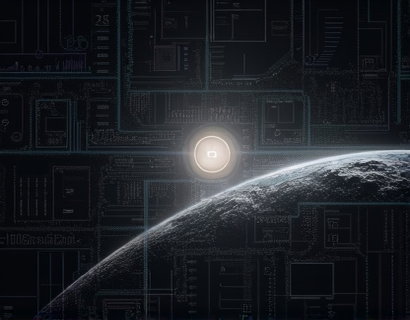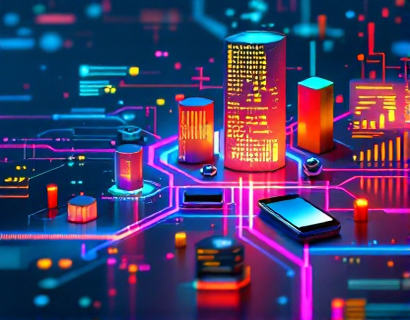Transforming Education with AI-Powered Knowledge Hubs
In the rapidly evolving landscape of education, the integration of technology has opened new avenues for learning and knowledge acquisition. One of the most promising developments is the emergence of AI-powered knowledge hubs, specifically designed to cater to the needs of educators and young learners. These platforms leverage advanced artificial intelligence to provide specialized insights into various industries and services, ensuring that the information provided is not only reliable but also tailored to the educational context.
The Need for Specialized Industry Knowledge
Educators today face the challenge of equipping students with knowledge that is both current and relevant. The pace of change in various industries means that traditional educational resources may quickly become outdated. An AI-powered knowledge hub addresses this gap by offering real-time, specialized insights. For instance, in fields like technology, healthcare, and environmental science, the landscape is constantly shifting, and having access to up-to-date information is crucial for both educators and students.
AI-Driven Chat Interface: A New Learning Paradigm
The introduction of an AI-driven chat interface represents a significant leap forward in educational technology. This interactive tool allows users to engage in natural conversations, asking questions and receiving detailed, context-specific answers. The chat interface is designed to mimic human-like interactions, making the learning process more engaging and intuitive. For young learners, this means a more accessible and enjoyable way to explore complex topics.
Content Verification and Safety
One of the key advantages of using an AI-powered knowledge hub is the emphasis on content verification. In an era where misinformation can spread rapidly, ensuring that the information provided to students is accurate and trustworthy is paramount. These platforms employ rigorous verification processes to validate the data, drawing from reputable sources and academic journals. Additionally, the chat interface is designed with safety in mind, creating a child-friendly environment that protects young users from inappropriate content.
Enhancing the Learning Experience
The integration of AI technology in education transforms the traditional learning experience into an interactive and personalized journey. Students can ask questions on a wide range of topics, from basic concepts to advanced theories, and receive immediate, detailed responses. This not only reinforces their understanding but also encourages critical thinking and curiosity. For educators, the AI chat interface serves as a valuable resource for lesson planning and providing additional support to students.
Personalized Learning Paths
AI-powered knowledge hubs can adapt to the individual needs of each user. By analyzing user interactions and learning patterns, the AI can tailor the content to suit the student's level of understanding and interests. This personalization ensures that each learner receives the most relevant and beneficial information, fostering a more effective and engaging learning experience. For educators, this means they can identify areas where students may need extra support and address these gaps more efficiently.
Industry-Specific Insights for Educators
For educators across various disciplines, having access to industry-specific insights is invaluable. Whether it's understanding the latest trends in education technology, best practices in classroom management, or the integration of STEM subjects, an AI-powered knowledge hub provides comprehensive and up-to-date information. This resource helps educators stay informed about the broader industry context, enabling them to deliver more relevant and impactful teaching.
Supporting Specialized Fields
Fields such as engineering, arts, and social sciences benefit greatly from specialized insights. For example, an AI chat interface can provide detailed explanations of engineering principles, showcase real-world applications, and highlight current research and innovations. In the arts, it can offer insights into different techniques, historical contexts, and contemporary movements. For social sciences, the chat can delve into sociological theories, economic trends, and cultural studies, all presented in an accessible and engaging manner.
Child-Friendly Design for Young Learners
The design of the AI chat interface is particularly focused on creating a safe and welcoming environment for young learners. The interface is intuitive and user-friendly, with a visual design that appeals to children. The language used is simplified and age-appropriate, ensuring that even the most complex concepts are explained in a way that is easy to understand. This approach not only makes learning more enjoyable for children but also builds their confidence in exploring new topics.
Parental and Teacher Involvement
Recognizing the importance of parental and teacher involvement in a child's education, the AI-powered knowledge hub includes features that facilitate collaboration. Parents and teachers can monitor the child's interactions, view the topics they have explored, and even engage in conversations themselves. This transparency and involvement help reinforce the learning process and ensure that the child's educational journey is supported both at home and in the classroom.
Fostering a Love for Learning
The ultimate goal of integrating AI-powered knowledge hubs into education is to foster a lifelong love for learning. By making knowledge accessible, engaging, and relevant, these platforms inspire students to explore and discover new interests. The interactive nature of the chat interface encourages active participation, turning the learning process into a dynamic and enjoyable experience. As students become more confident and curious, they are more likely to pursue their passions and excel in their chosen fields.
Building a Knowledge-Empowered Future
The impact of AI-powered knowledge hubs extends beyond the classroom, contributing to the broader goal of building a knowledge-empowered society. By equipping educators and young learners with reliable, specialized insights, these platforms play a crucial role in shaping the future of education. As technology continues to evolve, the potential for innovation in educational tools is vast, promising a future where learning is more personalized, accessible, and effective than ever before.










































